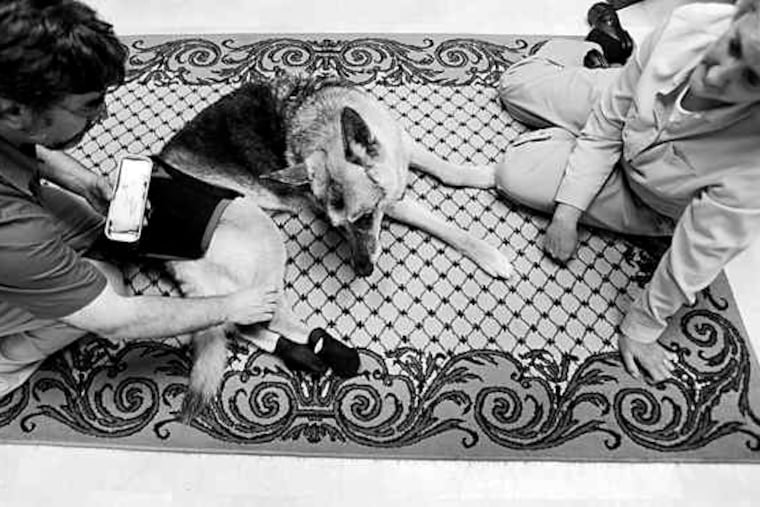Pet owners turning to alternative medicine
WASHINGTON - The prognosis wasn't good for Bilbo. The middle-age pug suffered from a whole host of ailments, including itchy skin, weakness in his back legs, and a loss of appetite.

WASHINGTON - The prognosis wasn't good for Bilbo.
The middle-age pug suffered from a whole host of ailments, including itchy skin, weakness in his back legs, and a loss of appetite.
Bilbo's regular veterinarian told his owner, Abe Haspel of Annandale, Va., that there wasn't much to be done. The feisty pug was getting old, and his condition would only continue to deteriorate.
But three years later, Bilbo is feistier than ever. Haspel credits monthly acupuncture treatments for the change.
"He's more energetic," Haspel said, "and his allergies have disappeared."
Although some in the veterinary profession are skeptical, Americans' growing fascination with alternative medicine is influencing the kind of care their pets get. Veterinarians once shunned because of their belief in therapies such as acupuncture and herbs are finding growing acceptance from peers and an eager reception from pet owners.
"Anything you can treat with Western medicine you can also treat holistically," said Jordan Kocen, a veterinarian who specializes in alternative therapies at SouthPaws in Fairfax, Va.
Like their human counterparts, dogs, cats, and rabbits are all good candidates for alternative treatments, Kocen said. He has used acupuncture to help a dog suffering from arthritis, and homeopathy to treat a cat's asthma.
The interest in alternative care is fueled in part by owners who have tried alternative therapies themselves. But sometimes, it's the humans who end up taking a cue from their animals.
"People see how acupuncture works for their pets, and suddenly," Kocen said, "they're asking if I can recommend a good acupuncturist for them."
The American Veterinary Medical Association says it is "open" to the consideration of alternative treatments.
For the last several years, the association has offered workshops about alternative treatments at its annual conventions, according to Craig Smith, a veterinarian and association staff member. But the group also says that "claims for safety and effectiveness ultimately should be proven by the scientific method."
"The biggest concern most veterinarians have is, 'Where is the science behind the therapy?' " said Bonnie Beaver, a veterinary professor at Texas A&M University.
Although acupuncture is increasingly accepted among veterinarians, treatments such as aromatherapy and herbal remedies remain controversial. Owners might be so eager to see improvement that they think they see a change when none is present, Beaver said.
Alternative treatments used to be scorned. Mark Haverkos, a veterinarian and animal chiropractor, said he was almost expelled from Ohio State's veterinary school in the 1980s after treating a horse with acupuncture.
Monique Maniet, a holistic veterinarian in Bethesda, Md., recalls being dismissed as the "voodoo doctor."
"Now, I have the respect of specialists, who refer to me when everything else conventional has failed," she said.
There is no official count of veterinarians who provide alternative care, but anecdotal evidence suggests the number is growing. Maniet remembers when only about 30 doctors attended yearly holistic veterinary conferences; today, more than 800 attend.
Maniet offers a wide array of therapies, including deep-tissue massage, chiropractic, and ozone therapy.
Pet insurance covers some treatments, such as acupuncture, which can start at $95 a session.
On one recent day, Debra Graves brought her middle-age border collie Ginny to Kocen, the Fairfax vet, for an acupuncture tuneup. He stroked the dog's back and felt along her spine. Then, with quick motions, he stuck several needles into her skin.
Ginny barely batted an eye.
"We come every three months," said Graves. "After a session here, she runs like a puppy."